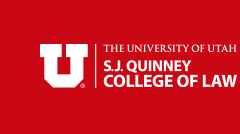Utah OnLaw: The Utah Law Review Online Supplement
Article Title
Abstract
The lawyer as advocate (who files briefs and delivers arguments) flows out of the lawyer as counselor (who listens to clients, shapes arguments, and forms relationships). In this sense, Professor Tarkington’s focus on attorney-client association mirrors the ways in which many groups function as the pre-political spaces in which ideas and relationships are formed in the first place. It is not enough for us to focus on the moment of expression (or the moment of advocacy) because we will never arrive at these moments without sufficient protection for the background circumstances in which they are crafted. That to me is the core reason that we must be vigilant to protect the groups out of which ideas and advocacy emerge. These protections are not absolute—we will rightly worry about and constrain criminal activity, threats of violence, and improper uses of power. But in policing those lines, we should be cognizant of the state’s ability to encroach too deeply, to describe too uncharitably, and to control too rigidly. In this sense, HLP’s rhetoric may be more dangerous than its holding. Professor Tarkington has helped us see why this is the case.
Recommended Citation
Inazu, John D.
(2013)
"Advocacy and Association,"
Utah OnLaw: The Utah Law Review Online Supplement: Vol. 2013
, Article 13.
Available at:
https://dc.law.utah.edu/onlaw/vol2013/iss1/13



